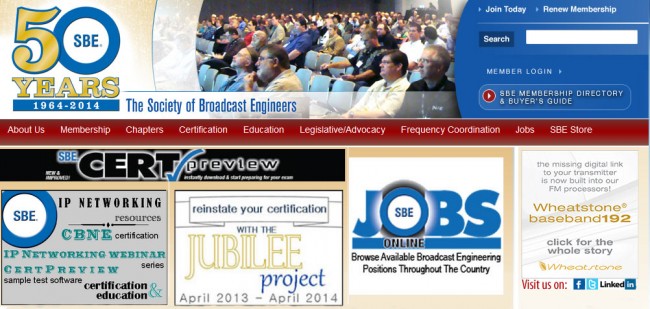
I am toying around with the idea of reinstating my SBE certifications. At one time, I was certified as a Senior Radio Engineer. That certification lapsed several years ago for a variety of reasons. First and foremost was my desire to find another career outside of radio. At the time, I was working for a giant flaming asshole who prided himself in causing his subordinates health problems; things like strokes and heart attacks. The sign over his desk read “The floggings will continue until morale improves.” I was also busy at home with a new, very young child and an old, broken-down house. There was not enough time to come up with enough professional points to re-certify or study for a test. So, it went by the wayside.
Lately, however, I am beginning to see some advantages of having an SBE certification:
- It comes in handy as a skills benchmark for potential clients and others
- It lends some amount of credibility among fellow broadcast engineers
- There is a support network for job searches
Thus, when I went to the SBE website and found the Jubilee Project, I was intrigued. The SBE is offering to reinstate those former members with lapsed certifications until April 2014 provided the applicant can supply enough recertification points. I am also contemplating taking the Certified Broadcast Networking Engineer test for much the same reasons listed above. I will let you know how it goes.
Incidentally, my ability to deal with giant flaming assholes as increased in the intervening years. What doesn’t kill you makes you stronger.


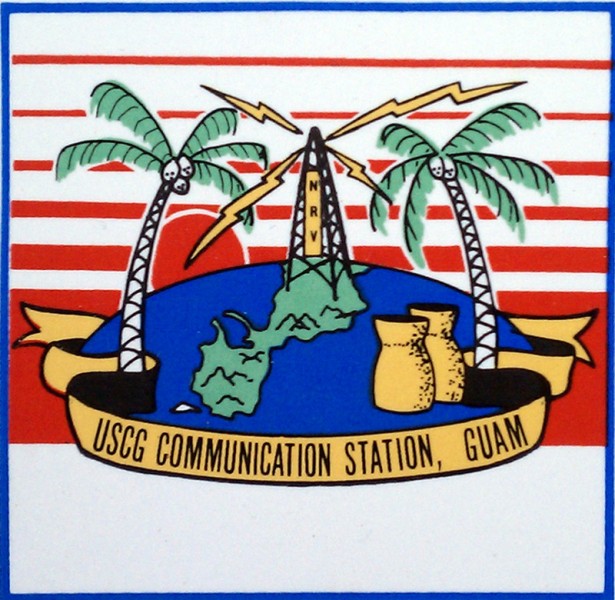
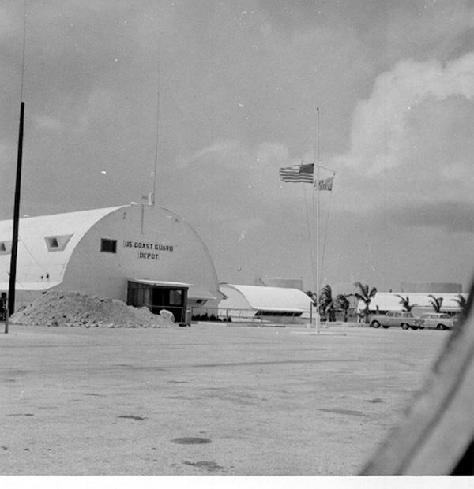
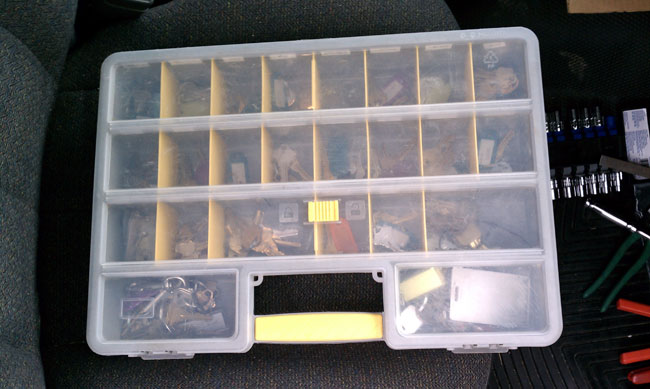
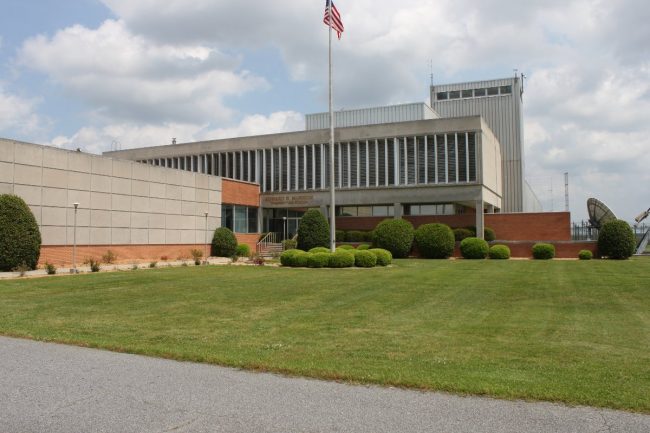
Paul, add another reason to join up again: No less than Tom Ray (WOR radio, Radio World, Ray Consulting et al) is establishing an SBE panel to explore the topic of mentoring new engineers. That’s the kind of advance thinking-ahead the society needs.
I have been thinking about it — quite a few of my co-workers and I gave up on the local SBE chapeter when they bestowed “Certified Professional Broadcast Engineer” on a guy who had trouble keeping inputs and outputs straight and was notorious for taking credit for other people’s work. At the time, it appeared the SBE cert was just a measure of one’s ability to schmooze and brown-nose. –Not that those aren’t skills, and often in short supply in our trade, but we had been of the impression that SBE was about engineering.
(I was also a bit irked at a meeting I attended a few years back; a guy from Bird gave a fascinating talk about a new dummy load design and afterwards most of the crowd was griping about the “incomprehensibly technical” presentation. Heck, it barely even had any math in it!)
Thing is, what else do you have to show to GMs? I can point to my 26 year record at my current employer, but it won’t mean all that much to the next one if I ever go elsewhere. So it’s probably time I started getting back into SBE.
The local chapter did not bestow the CPBE certification. That was done at the National office. The person in question met the criteria and was awarded the certification. It is based on engineering, not personality. The people who failed to comprehend the Bird presentation represent the dim future people like Tom Ray and the SBE are trying to brighten. Today’s engineering training is more digital, fiber and microprocessor oriented, however, RF is a key component in broadcasting, cellular and other fields.
SBE certification is an asset if you are called upon to testify at ZBA, zoning, civil and criminal trials. I have experience in all of those. It is also a recognition of your abilities, experience and dedication to self-improvement. One can claim long term employment at a single facility, but that may not represent knowledge in all aspects of broadcasting. By this I mean if your station has a co-located transmitter and studio you may not have experience in STL and its many forms. If you are still using an old model tube transmitter your solid state experience may be limited. The SBE exams keep up with new technologies and therefore are a good indicator of how well you maintain currency with these technologies.
I am Life Certified CPBE and prior to that maintained certification by submitting evidence of continuing education, conference attendance, continuous employment, articles published, etc. If I did not believe in the SBE or its certification program I would not support it by maintaining my membership. I have been educated by guest presenters and field meetings in my local SBE chapter.
As a former local chapter chairman (of Tom’s local chapter actually, who had Tom speak for one of his meetings),
I can assure you the local chapter has no say in the outcome of any certification test. The tests given are open book, closed notes, however they are quite difficult and are designed to prevent the very thing you’re discussing. There is also the recertification that has to come every x amount of years.
Tom it’s the lay of the land, sadly, the guys like us, who are geniunely interested in RF engineering, are a “dying breed”. But you have to think there ARE young guys out there who want to know and learn RF engineering, and want to know how those crazy complicated boxes bring music and pictures to receivers 100 miles away. I am glad to see programs like the Bird presentation for just that crowd.
Tom: If it’s in the transmission chain, I have touched it. (Transmitters? I’m the last person to have got my station’s 1957 RCA A-line [TT50AH] running and the only person to have converted a 2000s-vintage Harris “Sigma” DTV rig to solid-state LPDTV. I’m on my third set of TSL/STLs. I’ve been the “go-to” person for radio transmitter oddness in this market for years, though modern ones offer way fewer surprises. I’ve built radio studios, transmitter sites, control rooms for radio and HDTV and I say this with a smile but you *really* don’t want to get into a “who knows more hardware” contest with me. Software, now, a modern server/automation radio-station-in-a-box, I’d be doing a lot of digging to get up to speed on. Video servers are probably simpler: they mostly just pretend to be well-behaved VTRs.)
SBE cert: after a due review of possible legal liability, and out of respect for the now-retired and no longer a professional liability unqualified recipient, I’m not going to provide further details; but it did happen, it was something of a “longevity” award, and was the occasion of considerable hard feelings on the part of those of us who had been assured that cert was an assurance one “met the criteria.”
(Frankly, I have long felt the “maintenance of cert” was a disservice to those of us who don’t fly a desk and have neither time nor money to go “jump through hoops” after having passed the test. Stamp the darned date on the certification, don’t make it go away over time. Especially with “points” for things like attending meetings — why get points for just showing up, when you get *zero* for actually doing your job? OTOH, that’s a bit personal, too; my shift ends with the evening newscast and they schedule the meetings to start about then, usually half-way across town.)
Well, this brings to light several good points:
1) No doubt there is a need to train new people in Broadcast Engineering. I have received several off line emails from people looking to get into the field. My response is usually this; Get a degree in and learn all you can about computers and networking. Take some classes in math, basic electronics, and physics. Look for an entry level job somewhere and become a sponge. Much of the Broadcast Engineering field is still learned by hands on experience. Those entry level jobs are getting harder and harder to find, thus the scarcity of new people. There should be a better way to do this.
2) The RF end of things has changed radically over the last 10-15 years. One can now buy a very good spectrum/network analyzer and tracking generator for under $2K (http://www.signalhound.com/). Solid state transmitters are modular and much easier to trouble shoot than their tube type brethren. That being said, there still are a lot of old transmitters out there that need to be cared for.
3) The SBE needs to do a better job promoting itself as a worthwhile organization and resource for Broadcast Engineers.
Part of the problem with this new solid-state stuff is that it’s so darn reliable, it hardly ever breaks. The other problem is that so many pieces of equipment have hard drives and operating systems in them that there’s very little you can do with the hardware. The first step is always “cycle the power” or “reboot”. The next step is “replace the hard drive and reload the software”. We have to get out of that method of fixing things. How many times will you do that with YOUR DexStar?
As more and more stations get bought by the handful of large broadcast corporations, they just send their existing engineers wherever they’re needed to take care of things, often getting rid of the existing people. New engineers really don’t have a chance unless they can join one of these larger companies, and they rarely want to hire someone with zero experience, since they don’t get any bang for their money until several years have passed. Today’s business model must see a profit within 6 months or they just get rid of people and move on.
I’m retired. I’m a member of SBE. I had a certification but without a full time job in the field, there’s no way to maintain it, and as Roberta above said, maintenance of those certs is a royal PITA. For me, there’s really no reason to continue with SBE. I can live fine without it, as I did before I joined 5-6 years ago.
I am ambivalent on the value of SBE certs, but do not dismiss the need for keeping engineering skills current. The last time I made an effort to get certified was when I was working in Albany back in the mid-80’s. I let my SBE cert lapse the 90’s when I found it, and the SBE in general, to have little relevance to my job at a TV network. Where I have worked in both NYC and DC, the SBE was seen as largely a radio engineer’s organization, while TV engineers were expected to join SMPTE. I know that is not the case in all markets, and the SBE chapter we had in Albany was a healthy mix of radio and TV people which I enjoyed immensely. While many engineers maintain SBE membership, I have never once been asked by a prospective employer if I had an SBE cert. Most employers were interested in A+, Cisco, MCSE, or even PMP certs. I like the idea of a mentoring program, but it is decades overdue and I can’t say that I’d encourage my own sons to follow my career path given the uncertainties hovering over the future of terrestrial broadcasting.
Paul wrote: “3) The SBE needs to do a better job promoting itself as a worthwhile organization and resource for Broadcast Engineers.” Amen, amen, amen. –I’d like the see them lean a bit more towards an ARRL-like model. There’s a real shortage of decent texts for this trade. (My late mentor Patrick S. Finnegan’s “Broadcast Engineering & Maintenance Handbook” is long out of print — and out of date, having been written and published before the desktop computer changed things so drastically. But it would be a good example for someone to follow.)
As for RF, the utter reliability of modern transmitters is something of a liability; when they fail, it can be a real struggle getting up to speed. I was lucky in that my employer sent me to classes for the original versions of both our big rigs,* but you have to have some prior background to make use of such opportunities. Hooray for inexpensive spectrum analyzers. especially with a tracking RF source — the first one I used, in the dim days of the AM stereo fiasco, was a revelation and subsequent TV employment showed how useful they are. The next level up is a network analyzer. Our corporate level owns one; I have had to call up the our consulting PE for help setting it up for exotic tricks like swept, on-channel TDR (!!!) but it’s an amazingly powerful gadget (and one I wish I had more time to play with). Even ham radio is seeing fewer and fewer hands-on RF geeks these days.
Jim’s comment, “I am ambivalent on the value of SBE certs, but do not dismiss the need for keeping engineering skills current,” is absolutely spot-on (IMO). SBE’s cert-maintenance requirement was supposedly intended to push engineers into keeping current. I question how well it works. Can you do periodic retesting instead? The old FCC-license model of “pass it once, have it forever” is probably inadequate as a measure of competence but so’s requiring essentially social activities (meeting attendance — counts even if you nod off) to keep certification current. (Don’t pilots have to retest periodically on skills in addition to the medical requirements?)
____________________________
* Of course, the 70 kW NTSC one is now a 6 kW DTV and the other one got de-tubed; but they’re mostly the same rigs and I did the conversions. 😉
I am a contract engineer located in a rural market area. I maintain around 30 full power FM, 6 AM, 2 TV, and a handful of translators. I also assist the staff engineers of a few larger groups. Between having my hands full with all of that, and the fact that I have to drive 250 miles to even attend an SBE meeting, I don’t see their certifications as having much relevance to me. I’m certainly not hurting for more work…and I’ve done project management and buildouts for several large groups over the years…have never once been asked if I was SBE certified. The only SBE meetings I have gone to were when I was involved in giving a presentation…and most of the people there were TV, not radio…mainly because the radio guys couldn’t afford to take an afternoon off to attend. I really like the idea mentioned in the first comment about the possibility of the SBE putting together a mentoring program for younger folks to learn this trade. That alone would actually make me reconsider the relevance of the SBE to my career. Over the years I have taken a few people on as assistants/interns…one of them is currently a regional engineer for a large radio group, another ended up going the IT route…but neither of them would have had any path to getting into broadcast engineering otherwise.
I’m 28 years old, I’ve not seen any broadcast engineering work worth going full time, my actual day job is engineering,building and maintaining a wireless broadband network that spans close to 30 towers at this point and still growing constantly. I actually have my guys doing another site tomorrow. I’d say this is much more challenging than a lot of the broadcast work I do.
I studied and picked up the broadcast work and was fortunate enough to learn on some really good tube rigs that I still maintain for a local owner/operator. AM/FM combo. CCA FM2500 on the FM, CSI T-1-A on the AM. Both are kept in top shape, I will not let a problem stump me. I’ve had one really good mentor in the local area that is now retired(mostly) he still takes care of another group, he wants to hand it off but I’m way too busy with my “real” job as I don’t see a full time opportunity in small town local radio.
I average 5-8 hours a month on maintenance, fixing automation screwups, etc for the two stations. I’ve become the goto for all computer and netowork issues because of the strong IT background. I studied and learned what needed to be done to do a solid state IPA conversion on the old CCA and got it done. Been one of the best things we did for the quality of the signal. I’ve been blessed with an owner that knows the value of having the proper tools for the job although he will whine about the bill sometimes. The station owns all the necessary test equipment to get stuff done, has backup facilities for the FM which is almost unheard of around here. The AM is a 1/4 wave folded unipole, I was thrown right in after a lightning hit, shortly after taking over, patched up enough to get a little signal on the air and studied for a few minutes, retrieved parts and rebuilt the ATU the next afternoon, matched it back up and went on down the road. I did call on the previously mentioned mentor to ask a couple questions on that one though.
I’ve sought out a couple books focusing mainly on MW broadcast antennas as that is where my interests lay. I’m also into the audio side and have an owner that likes getting to play with the latest. We demoed a couple of the latest processors, my favorite being the O.9, but we landed with a hardened rackmount PC running stereo tool with a Marian Trace Alpha card. Quite the impressive piece of software and the price is right. We run it a lot more conservatively than the built in presets and have by far the cleanest, best sounding station around, by many opinions, enough so that the common listener actually comments on it.
We’re the only station in town that is using IP audio in the studio. When we moved, I redesigned everything, rebuilt in place at the old location with cables stretched across the floor, wired the new facility and moved overnight. total off air time was 2.5 hours. Now the control room interconnects consist of 2 ea. CAT5 cables. Audio network and data network. Has worked flawlessly and as designed for nearly 3 years. The owner still does not believe the off air time, he was out of town during the move as he “didn’t want to hear the trainwreck”… The morning guy and I did the move ourselves on a saturday night.
Well, this has gotten long winded, my point being there still are a few younger people interested in all things RF. I’m always open to learning and do learn something new almost every day. I picked up quite the interest in the broadcast radio side of things due to an owner that was willing to give a chance, that also operates a very successful pair of stations in a small market, that has the money to do stuff right. I’ve dabbled with a couple others that just stiffed me for money, I formed a bad taste in my mouth for radio station owners early on, learned not to do business with them, they’ll figure it out.
I have the disadvantage of having become quite rusty in RF in recent years — my engineering position is with a DC-based radio network in which my energies are concentrated on computers, studio maintenance, recording and editing, IP, ISDN et al; and without a transmitter in my backyard, a necessary skillset is fading.
Fortunately I am still employable because my skills are smeared all over the road – creative broadcaster, capable engineer, decent writer and skilled audio production rat. There’s a combined position for me somewhere in a company. That can all change tomorrow if some kid with Audacity on his laptop and a Radio Shack 30-in-1 experimenter’s kit shows up at our door. I need to bolster my RF chops, but in this burg, it just ain’t happening.
I had SBE Certification for a while. I found it to be as useless as the paper it was printed on. The problem is that its not universally accepted. Many DE’s are not even members of SBE. And then after being insulted by a chapter officer, I gave up on them all together.
These days it would be best to have a BSEE or a BSCS (Computer Science).
I don’t think A+, Net+, or CCNA would help you.
And then, I haven’t even touched upon the social requirements needed for employment.